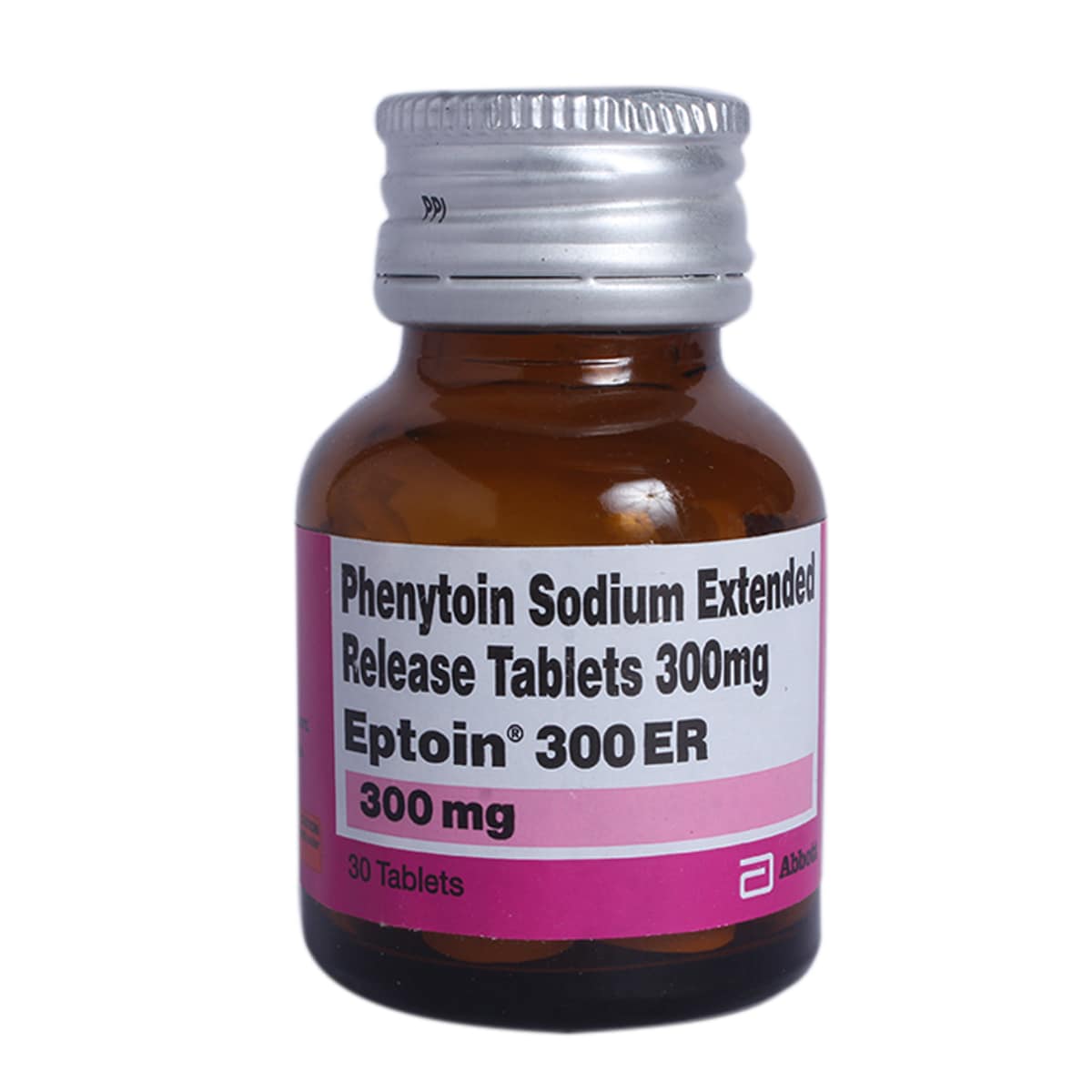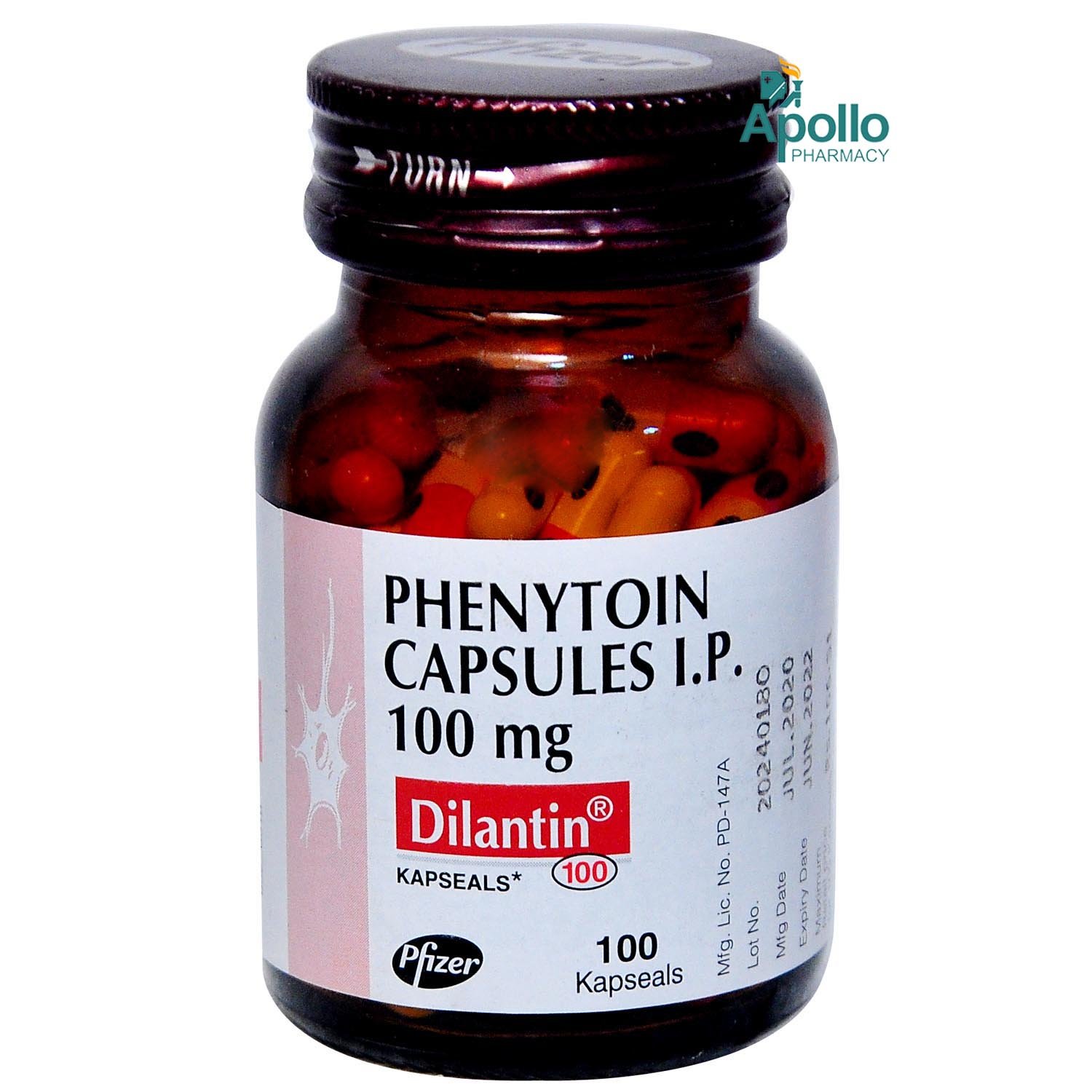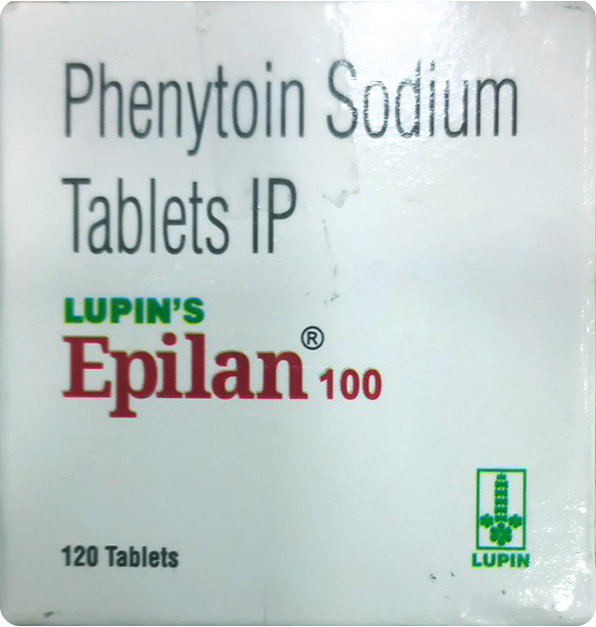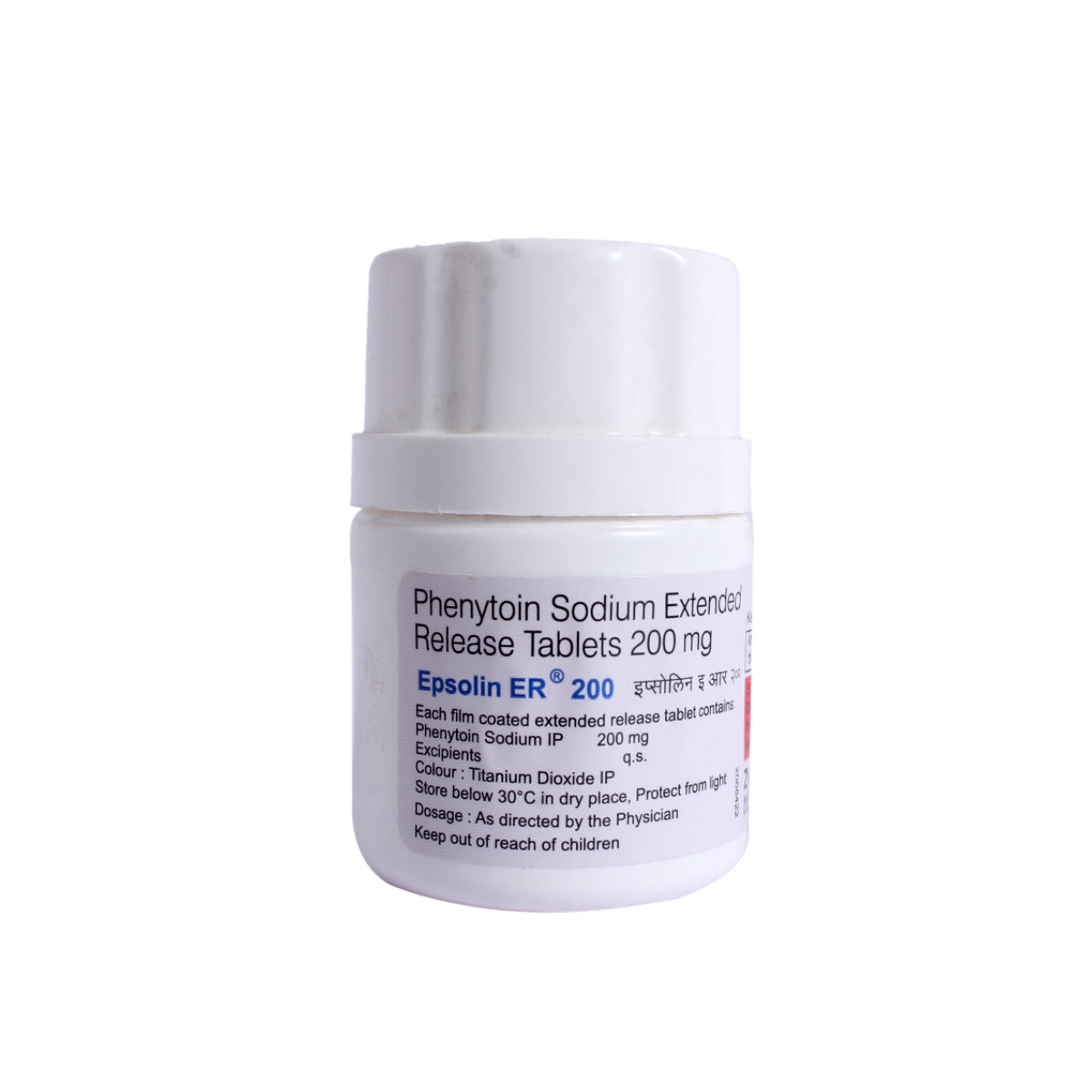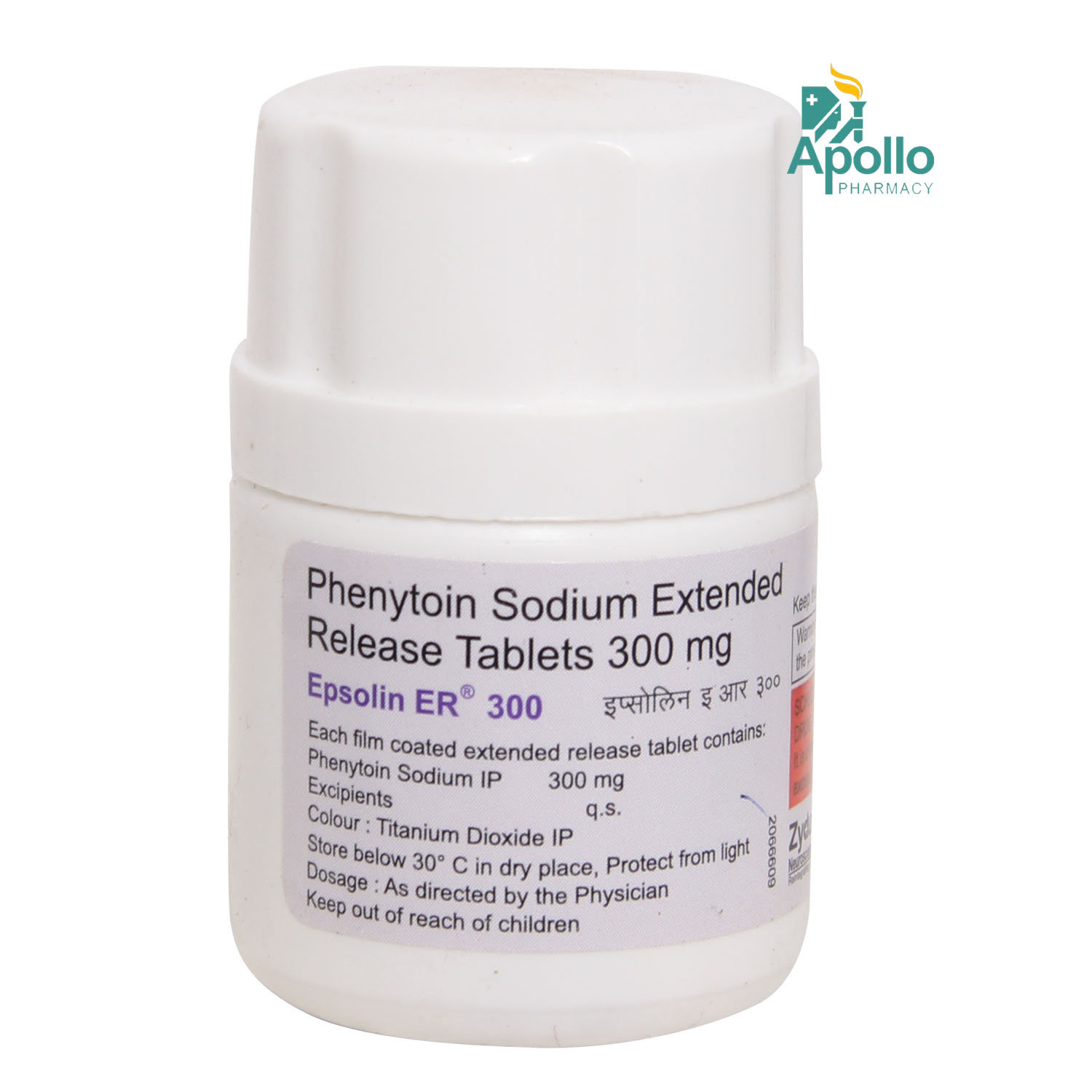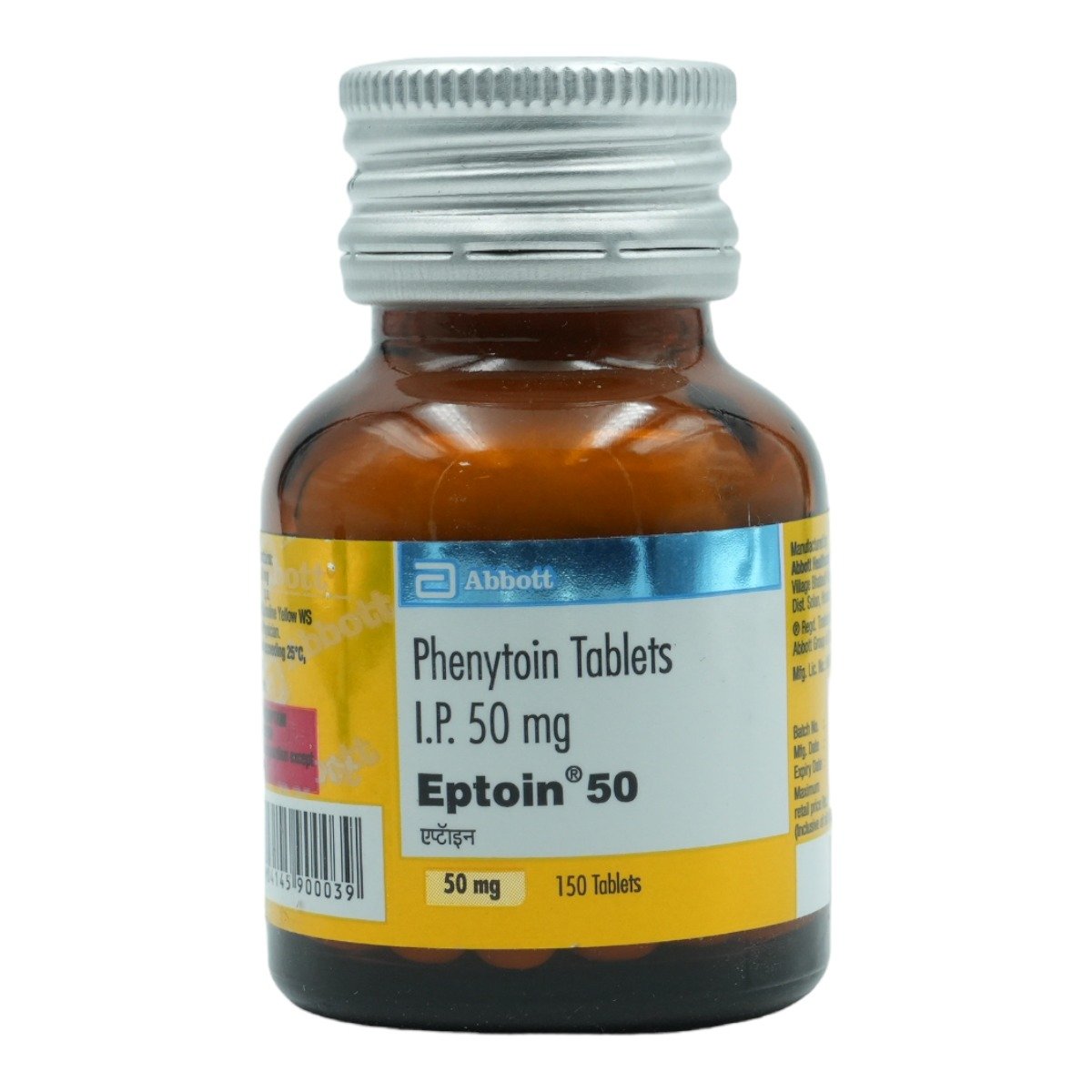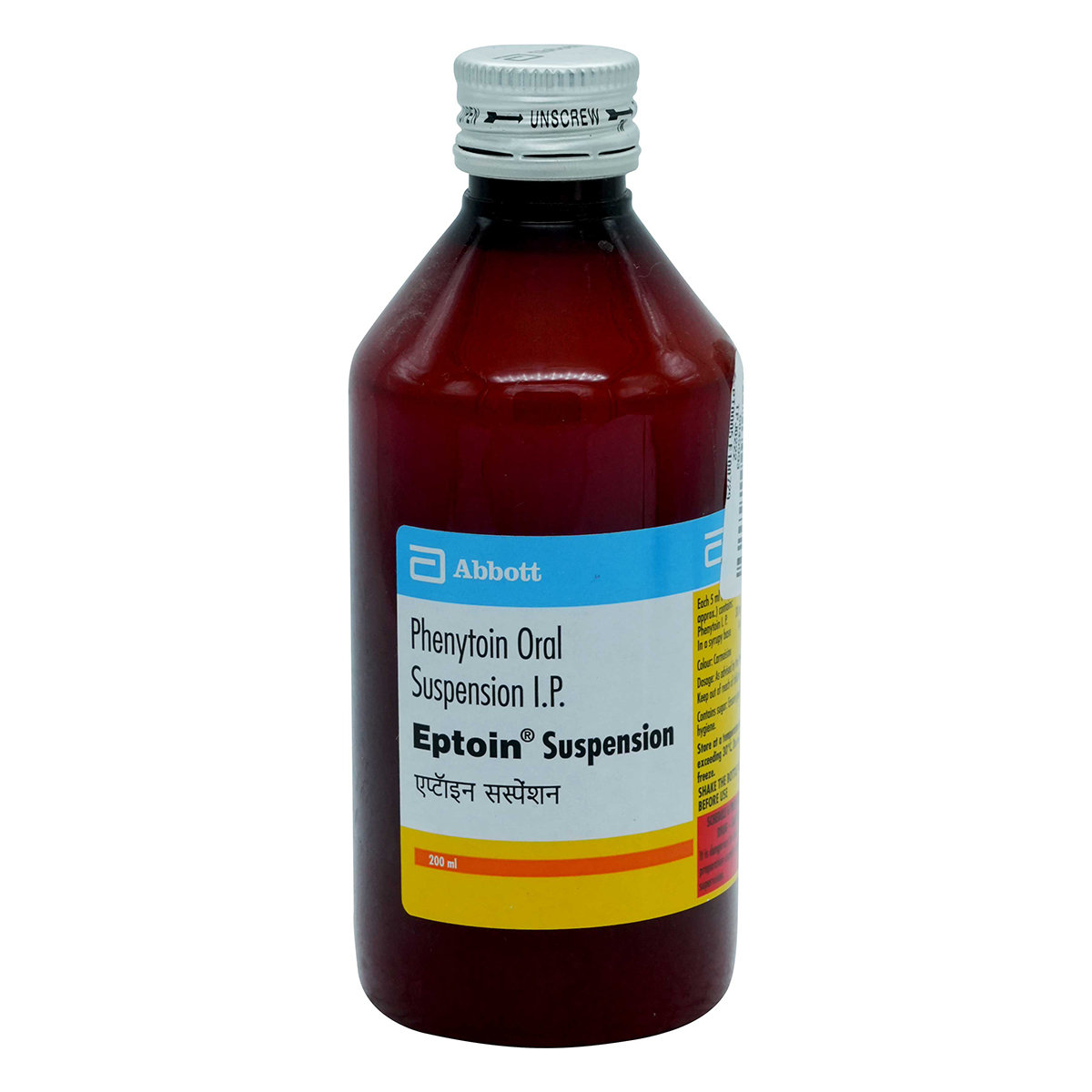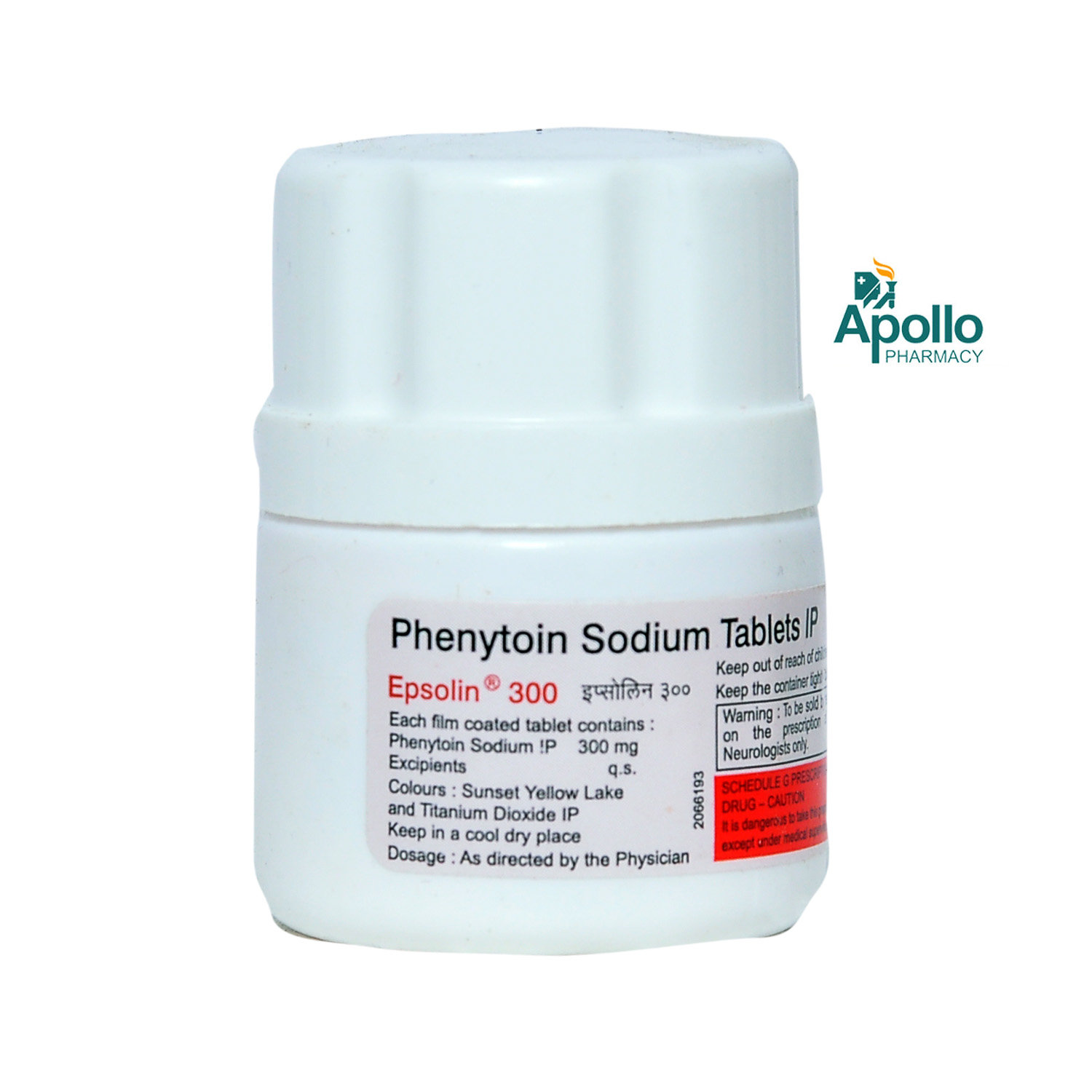Phenytoin
About Phenytoin
Phenytoin is an anticonvulsant medication used to treat epilepsy/seizures, and prevent seizures during/after brain surgery or after traumatic brain injury. Besides this, Phenytoin may also be used to treat trigeminal neuralgia (facial nerve pain). Epilepsy is a central nervous system disorder characterized by a sudden rush of electrical activity in the brain, leading to seizures, unusual behaviour, and loss of awareness.
Phenytoin contains Phenytoin, which helps prevent neurons from working at a very fast speed, thereby preventing the brain cells from firing together rapidly in an uncontrolled way. As a result, Phenytoin controls the overactivity of the brain cells that cause seizures. Phenytoin slows down the electrical impulses in the nerves and reduces their ability to transmit pain, thereby treating trigeminal neuralgia.
You are advised to take Phenytoin for as long as your doctor has prescribed it for you, depending on your medical condition. In some cases, Phenytoin may cause certain common side effects such as weakness, drowsiness, dizziness, confusion, restlessness, slurred speech, constipation, loss of coordination, and abnormal eye movement. Most of these side effects do not require medical attention and will resolve gradually over time. However, you are advised to talk to your doctor if you experience these side effects persistently.
To treat your condition effectively, continue taking Phenytoin for as long as your doctor has prescribed it. Please do not skip any doses or stop taking Phenytoin suddenly without consulting your doctor, as it may lead to increased seizures. Avoid taking Phenytoin if you are pregnant or breastfeeding unless prescribed by the doctor. Avoid alcohol consumption while taking Phenytoin, as it might cause increased dizziness. Inform your doctor about all the medicines you are taking and your health condition to rule out any side effects or interactions.
Uses of Phenytoin
• Management of Epilepsy/Seizures: Phenytoin is primarily used to control various types of seizures in patients with epilepsy, such as complex partial (psychomotor) seizures and tonic-clonic seizures. It helps to reduce the frequency of these seizures.
• Long-term Seizure Management: Phenytoin is often used as part of a long-term strategy for managing epilepsy, allowing individuals to maintain better seizure control over time and improve their quality of life.
• Short-term Prevention of Seizures: Phenytoin is also used to prevent seizures before/during/after brain surgery, as well as following a traumatic brain injury (head injury).
• Managing Trigeminal Neuralgia: Phenytoin may be used to reduce pain episodes in patients with trigeminal neuralgia by stabilizing nerve impulses.
Medicinal Benefits
Phenytoin belongs to the group of anticonvulsant medicines called 'hydantoins' used to treat epilepsy/seizures. Phenytoin is also used to control and prevent fits during or after a severe head injury or brain surgery. Phenytoin works by controlling the overactivity of the brain cells that cause seizures (fits). Thereby, Phenytoin helps in controlling epileptic fits involving spasms of the muscles and jerking. Phenytoin may also be used to treat trigeminal neuralgia (facial nerve pain). Phenytoin slows down the electrical impulses in the nerves and reduces their ability to transmit pain. Thereby treating trigeminal neuralgia.
Directions for Use
- Phenytoin can be taken with or without food, as advised by your doctor.
- Your doctor will determine the dosage and timing of Phenytoin based on your medical condition.
- Swallow it as a whole with a glass of water.
- Do not crush, chew, break, or open the medication.
Storage
Side Effects of Phenytoin
- Weakness
- Drowsiness
- Dizziness
- Confusion
- Restlessness
- Slurred speech
- Constipation
- Loss of coordination
- Abnormal eye movement
Medicines Containing this Salt
View AllDrug Warnings
Do not take Phenytoin if you are allergic to any of its contents. Stop taking Phenytoin and consult your doctor if you develop any skin rashes (Stevens-Johnson syndrome), swollen glands (anticonvulsant hypersensitivity syndrome - AHS), or have suicidal thoughts. Inform your doctor if you have anaemia, alcoholism, blood disorders, depression, porphyria (a genetic disorder that disrupts the production of haemoglobin), vitamin D deficiency, or heart, kidney, or liver problems. Avoid taking Phenytoin if you are pregnant or breastfeeding unless prescribed by your doctor. Phenytoin should be given to children only if prescribed by a doctor. Let your doctor know if you have diabetes, as intake of Phenytoin affects the blood sugar level. Avoid alcohol consumption while taking Phenytoin, as it might cause unpleasant side effects. Intake of Phenytoin may cause dizziness, so be cautious while driving or operating any heavy machinery.
Drug Interactions
Drug-Drug Interactions: Phenytoin may interact with certain medications, such as painkillers (aspirin, acetaminophen, ibuprofen), blood thinners (warfarin, clopidogrel), anticonvulsants (carbamazepine, gabapentin and pregabalin), antianxiety drugs (diazepam), antidepressants (fluoxetine, quetiapine), diuretics (furosemide), cholesterol-lowering agents (atorvastatin), drugs used to treat erectile dysfunction (sildenafil), drugs used to treat thyroid deficiency (levothyroxine), anti-HIV drugs (delavirdine), and supplements (cholecalciferol, folic acid).
Drug-Food Interactions: Do not take Phenytoin with St. John's wort (an antidepressant herbal supplement).
Drug-Disease Interactions: Inform your doctor if you have diabetes, anaemia, alcoholism, blood disorders, depression, suicidal thoughts, porphyria, vitamin D deficiency, or heart, kidney, or liver problems.
Drug-Drug Interactions Checker List:
Safety Advice

Alcohol
unsafeAvoid alcohol consumption while taking Phenytoin, as it may increase/decrease your blood levels of this medication and cause unpleasant side effects.

Pregnancy
cautionDo not take Phenytoin if you are pregnant unless prescribed by the doctor. Your doctor will prescribe Phenytoin only if the benefits outweigh the risks. If you become pregnant while taking Phenytoin, then do not stop taking Phenytoin without consulting your doctor.

Breast Feeding
cautionPlease consult your doctor before taking Phenytoin if you are breastfeeding. Your doctor will decide whether Phenytoin can be given to breastfeeding mothers or not.

Driving
unsafePhenytoin may cause dizziness and drowsiness. Therefore, avoid driving and operating machinery until you are mentally alert.

Liver
cautionDose adjustment may be needed. Phenytoin should be used with caution in patients with liver impairment/liver disease. Please consult your doctor if you have liver impairment or any concerns regarding this.

Kidney
cautionDose adjustment may be needed. Phenytoin should be used with caution in patients with kidney impairment/kidney disease. Please consult your doctor if you have kidney impairment or any concerns regarding this.

Children
safe if prescribedPhenytoin should be given to children only if prescribed by a doctor.
Habit Forming
Diet & Lifestyle Advise
- A ketogenic diet (low in carbohydrates and high in fats) is recommended for people with epilepsy. This diet helps in utilizing fat instead of glucose for the generation of energy.
- The Atkins diet (high fat and controlled carbohydrates) is recommended for adolescents and adults.
- Rest well, and get plenty of sleep.
- Avoid smoking and alcohol consumption.
- Exercise, meditation, and yoga can help lower stress, decrease pain sensitivity, and improve coping skills.
- Prepare your living area; small changes may reduce the risk of physical injury during a seizure.
- Install an alarm or emergency device to get assistance during a seizure attack.
- Have a seizure response plan; this helps those around you know what to do.
- Understand what triggers seizures and try reducing or avoiding them.
- Please pay attention to overall health, as it can help in reducing seizure activity.
Special Advise
- Your doctor may advise you to get regular blood tests to check for any abnormalities in your blood and test the amount of Phenytoin in your blood.
Patients Concern
Disease/Condition Glossary
Epilepsy/Seizures: Seizures, also known as fits or convulsions, are a single occurrence of abnormal electrical activity in the brain, whereas epilepsy is a chronic neurological disorder characterised by recurrent seizures. The possible causes of epilepsy include traumatic brain injury, scarring on the brain after a brain injury, high fever, stroke, vascular diseases, lack of oxygen to the brain, brain tumours, and genetic disorders. Symptoms include mood changes, anxiousness, nausea, dizziness, weakness, headache, muscle jerking, spasms, loss of balance, teeth clenching, rapid blinking or eye movements, biting the tongue, confusion, and loss of consciousness.
Trigeminal neuralgia: It is a condition affecting the trigeminal nerve in the face that causes painful sensations similar to electric shock on one side of the face. Symptoms include mild to severe facial pain often triggered by speaking, chewing, or brushing the teeth.
FAQs
Phenytoin is used to treat epilepsy/seizures and prevent seizures during/after brain surgery or after traumatic brain injury. Besides this, Phenytoin may also be used to treat trigeminal neuralgia (facial nerve pain).
Phenytoin contains Phenytoin (an anticonvulsant), which helps prevent neurons from working at a very fast speed, thereby preventing the brain cells from firing together rapidly in an uncontrolled way. As a result, Phenytoin controls the overactivity of the brain cells that cause seizures. Phenytoin slows down the electrical impulses in the nerves and reduces their ability to transmit pain, thereby treating trigeminal neuralgia.
Phenytoin can make birth control pills less effective. Talk to your doctor about using non-hormonal contraceptives like condoms and a diaphragm with spermicide to prevent pregnancy.
Please do not stop taking Phenytoin without consulting your doctor, as it may cause increased seizures. Continue taking Phenytoin for as long as your doctor has prescribed it to you. Do not hesitate to consult your doctor if you experience any difficulties while taking Phenytoin.
Yes, Phenytoin may cause swelling in the gums. Brush and floss your teeth daily; visit your dentist if you experience this problem regularly.
Phenytoin may affect the breakdown of the blood sugar/glucose and may prevent the release of insulin, thereby leading to high blood sugar. So, contact a doctor before using Phenytoin if you have diabetes.
A seizure generally lasts from a few seconds to a few minutes, depending on the type of seizure.
Take Phenytoin with or without food, as advised by your doctor.
You are recommended to avoid alcohol consumption while taking Phenytoin as it may cause increased side effects.
Phenytoin may stay in our system (body) for 5 to 6 days on average. This duration is different for each person. In some cases, it may remain for about 9 to 10 days.
Phenytoin overdose can be fatal and may cause symptoms such as slurred speech, twitching eye movements, muscle stiffness or weakness, tremors, loss of balance, lightheadedness, fainting, vomiting, nausea, and slow or shallow breathing. Also, it may cause very low blood pressure and even coma. Therefore, do not exceed the recommended daily dose.
Patients with liver disease, particularly if they have a history of developing a liver problem due to Phenytoin should avoid taking Phenytoin. Additionally, anyone taking Delavirdine (a medicine used in the treatment of HIV infection) should not take Phenytoin as it may reduce the effectiveness of Delavirdine against HIV and the virus may also develop resistance to Delavirdine. It is advised to inform your doctor before taking Phenytoin if you have any existing heart problem.
You are recommended to consult your doctor before taking Phenytoin with ibuprofen or other medicines to avoid drug interactions.
The most common side effects of Phenytoin in children are overgrowth of the gums and jerky movements of the eyes (nystagmus). In some children, it causes problems with behaviour or thinking, mood change, loss of energy and slow or clumsy movements. High doses may cause side effects such as vomiting, sleepiness and unsteadiness in the feet and hands. To avoid these, the dose is increased gradually. As soon as the dose is reduced, these side effects disappear.
Phenytoin does not cause weight gain. However, on longer term use of a higher dose of Phenytoin, weight loss can occur. If you experience weight gain after taking Phenytoin, please consult your doctor.
Phenytoin can make you feel sleepy as a side effect. However, if you feel extremely sleepy after taking Phenytoin, especially in the first few weeks of treatment or after a dose increase, please consult your doctor.
The common side effects of Phenytoin include weakness, drowsiness, dizziness, confusion, restlessness, slurred speech, constipation, loss of coordination, and abnormal eye movement. Most of these side effects do not require medical attention and will resolve gradually over time. However, you are advised to talk to your doctor if you experience these side effects persistently.


